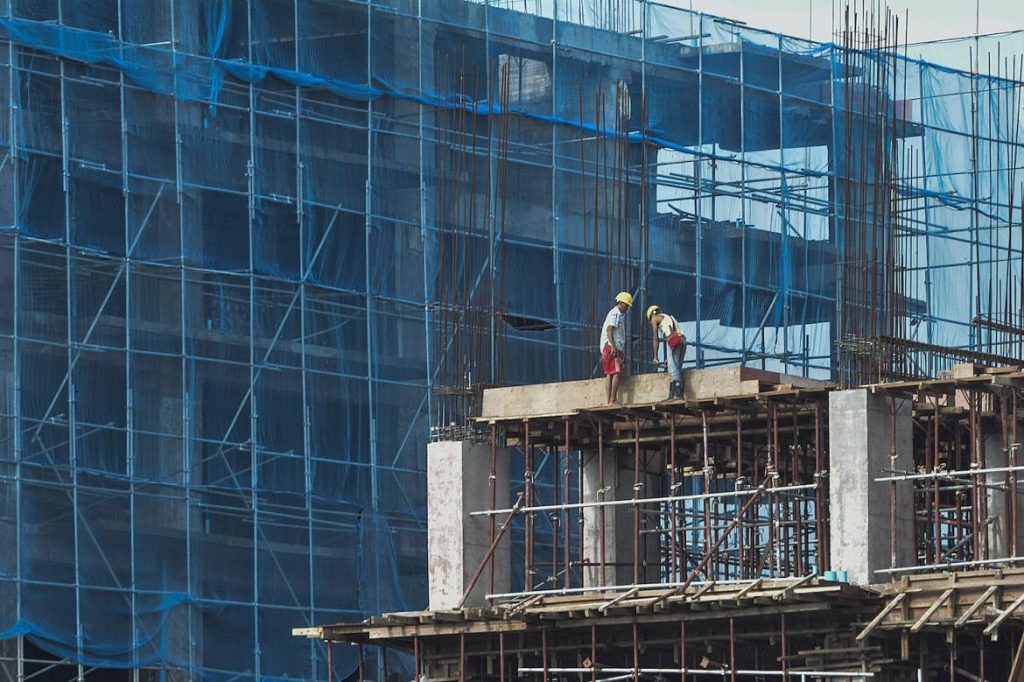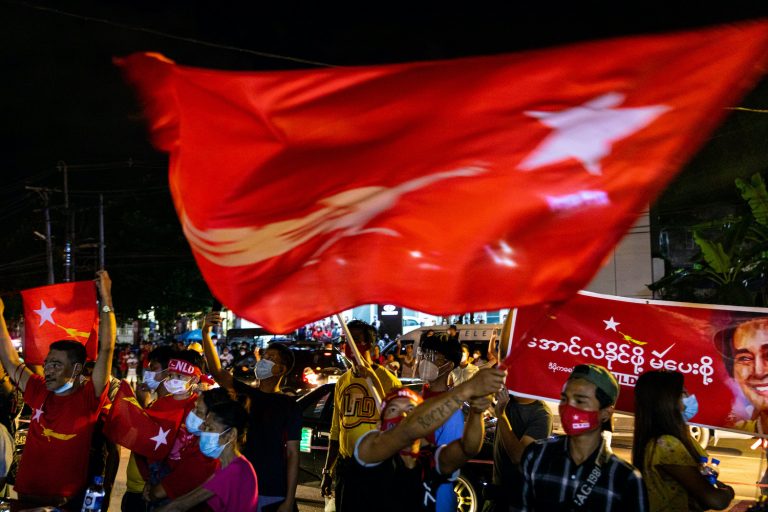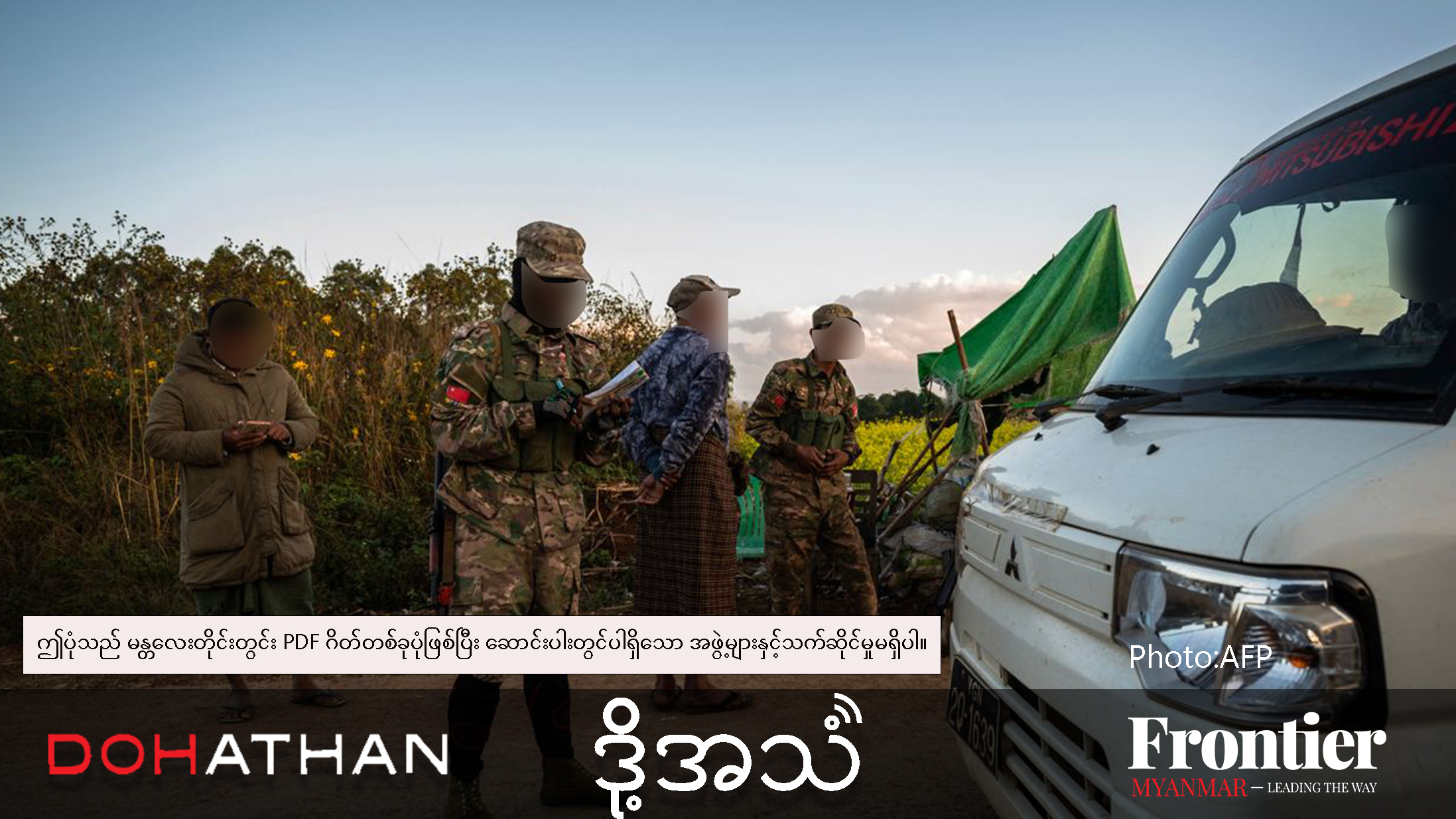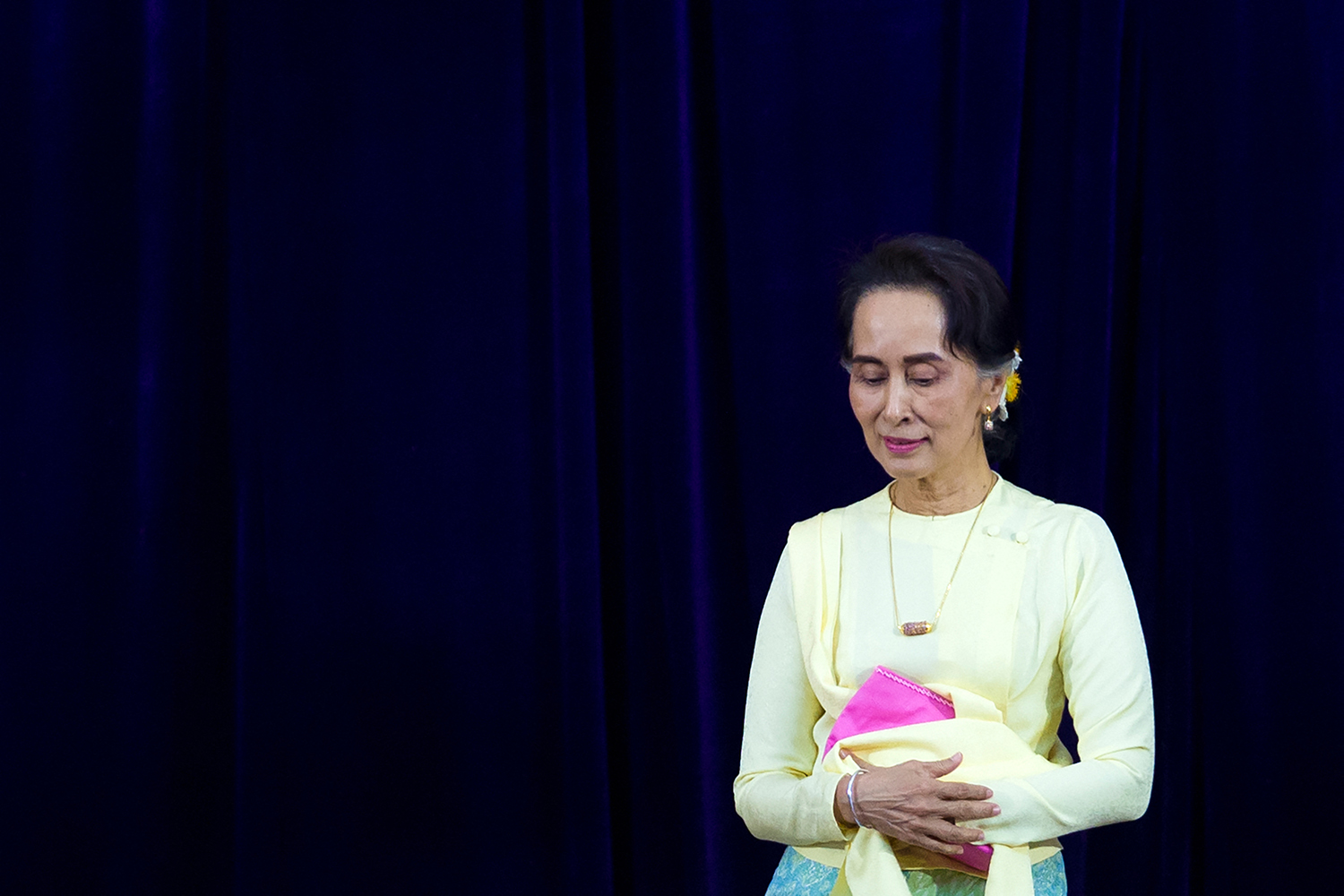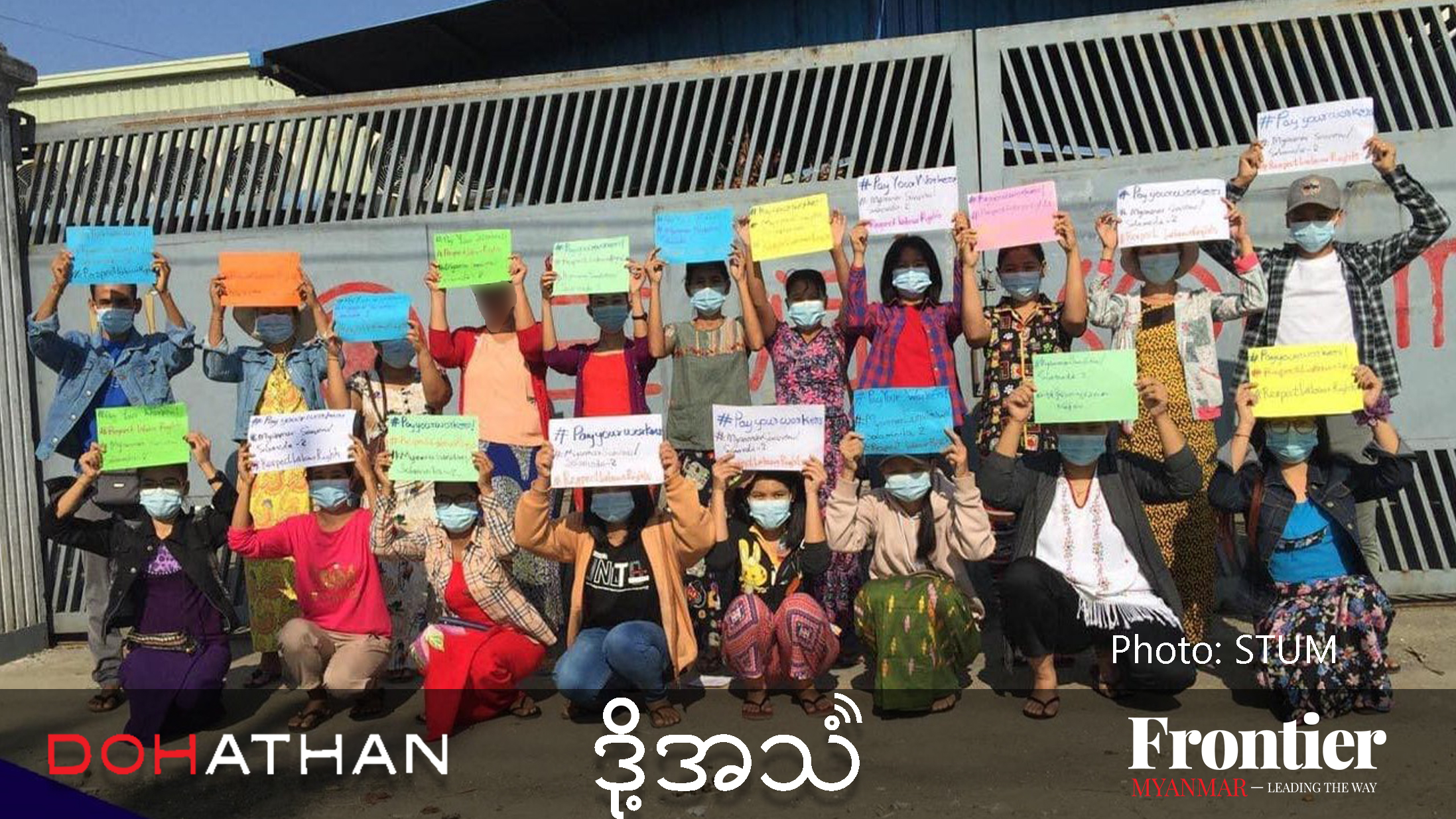Parliament has scrapped a tax amnesty plan proposed by the construction industry that some observers have said was “fundamentally unfair”.
By THOMAS KEAN and NYAN HLAING LYNN | FRONTIER
TAX IS NOT normally a topic that provokes excited debate, but this year’s Union Tax Law has proven an exception, thanks to a proposed tax amnesty pushed by the construction and property industries.
The amnesty proposed in the draft tax law would have enabled resident and non-resident citizens to pay as little as 3 percent tax on previously undeclared income, down from the 15-30 percent currently levied.
This prompted concerns about fairness: those who avoided tax in the past would not only escape punishment, but also pay a lower rate than those who had followed the rules and paid the corporate tax rate or top income tax rate, which are both 25 percent. Some have argued it would also encourage further tax avoidance and potentially facilitate money laundering.
But after weeks of parliamentary hearings, the Pyidaungsu Hluttaw on March 20 approved the 2018-19 Union Tax Law without the tax amnesty. The decision was made at a closed-door parliamentary hearing convened by the Joint Bill Committee that concluded on March 16. Unusually, the hearing heard testimony from both local and foreign experts, including Mr Robert Conrad, an associate professor of public policy and economics in the Sanford School of Public Policy at Duke University, in the United States.
Support more independent journalism like this. Sign up to be a Frontier member.
Mr Sean Turnell, a special economic adviser to the state counsellor, said the decision to scrap the amnesty was a “genuinely good story” where parliamentary scrutiny had stopped the introduction of a “bad policy”.
“It’s the NLD [National League for Democracy] being true to its constituency and its vision,” he said. “This is a really good thing. [The amnesty has] been pushed by strong interests and parliament, to its great credit, is really doing its job. It scrutinised the bill and found it wanting.”
Turnell, who gave evidence at the parliamentary hearing, said that while an amnesty could potentially be beneficial the proposed model was “fundamentally unfair”.
“Why should someone who is doing the wrong thing have an advantage over someone who is actually paying their taxes?” he said.
The Ministry of Finance and Planning, which drafted the tax law, plans to write a separate tax amnesty law. Given the concerns about the attempts to insert it into this year’s Union Tax Law, that could be a lightning rod for further conflict.
‘Time to set things straight’
The amnesty had been pushed hard by leading figures in the business community, particularly the construction sector, as a means of boosting the economy by putting the money to productive use.
At a regular meeting between Vice President U Myint Swe and the business community in December 2017, the Myanmar Real Estate Services Association urged the government to “slash” tax rates to spur activity in the property market.
Since then, state media have run articles supporting the tax amnesty, claiming that it will encourage those holding money in foreign banks to bring it back and investment in financial markets and job-creating industries. “It is very important for the Pyidaungsu Hluttaw to enact the Taxation Law for taxpayers to be able to help in nation-building and development sectors,” wrote one columnist on March 12.
U Ye Min Aung, who leads the tax working group at the Union of Myanmar Federation of Chambers of Commerce and Industry, said the private sector had met the Ministry of Finance and Planning and convinced officials that “there should be some kind of amnesty to be given one time”.
While the focus has been on the amnesty’s impact on the property and real estate market, he said it would have a much broader positive effect. The levy on undeclared income is payable on a range of moveable goods, including vehicles and shares in public and listed companies.
Ye Min Aung disputed the suggestion that an amnesty – or “conditional exemption” – would be unfair or benefit mostly the wealthy. The 25 percent corporate tax is payable only on profits, he noted, while income tax rates are levied progressively. The top rate of 25 percent, for example, is levied once an individual’s income reaches K30 million for the year; below K6.8 million, no taxes are payable. As a result, most people pay little or nothing.
He said everyone agreed the amnesty should only occur once.
Ye Min Aung said he agreed with the decision to write a separate tax amnesty law, adding that the Ministry of Planning and Finance was now required to prepare a bill and submit it during the next parliament session.
The law should contain detailed procedures in order to avoid corruption, and should state that there will be no future amnesties, he said. “This is just a prescribed time to set things straight.”
But Turnell said that Myanmar’s long history of tax amnesties – this would have been the seventh over the past decade – meant that people had grown used to them. As a result, they simply diverted the timing of tax payments rather than encouraged real behavioural change.
He suggested a compromise might be to introduce an amnesty where those who have avoided tax are not prosecuted or fined but pay the same rate as everyone else.
“It doesn’t mean it’s the end of the idea of a tax amnesty. The parliament is saying that you need to do better than this.”
Divided government, divided parliament
The amnesty not only divided the government, it also split MPs, with no clear party line from the NLD. Many though stressed that such a policy required careful consideration, and suggested that both the decision to include it in the Union Tax Law and the wording of the amnesty had been problematic.
While most MPs acknowledged that tax evasion was widespread and affected all levels of society, MPs expressed concern that the amnesty would mostly benefit the country’s wealthiest.
Amyotha Hluttaw lawmaker U Htun Htun Oo (NLD, Mandalay-2) voiced the concerns of many when he said, “We need to consider this law carefully so that it won’t just help cronies who have evaded tax by various means and give a special chance to those who want to launder their black money.”
Many lawmakers felt they had not been given enough time or information to make an informed judgment about the amnesty.
“Who will be responsible if [the amnesty] produces bad consequences?” said U Myo Win (Amyotha Hluttaw, NLD, Mon-8). “This law … calls for careful calculation.”
Hluttaw voices:
U Yee Mon, NLD, Pyithu Hluttaw, Pobbathiri
The tax rate is high. If people don’t want to pay, they will evade taxes. The number of taxpayers will only increase if the income tax rate is fair. So I’d like to advise a reduction in the tax rate.
Major Moe Han, Amyotha Hluttaw
[The amnesty] is unfair. It could make people who are paying tax try to evade their tax payments. Although the draft law said action should be taken to ensure there is no money laundering or purchasing of real estate with drug money, it’s not going to be possible because of the lack of proper supervision. Corruption could increase [because of the amnesty].
Daw Phyu Phyu Thin, NLD, Pyithu Hluttaw, Mingalar Taung Nyunt
People have avoided tax in the past for various reasons. This tax amnesty could have both good and bad consequences. It might encourage tax evasion – taxpayers will give [25 percent] while tax evaders will give 3 percent.
U Soe Thane, Amyotha Hluttaw, USDP, Kayah-9
It’s difficult to say whether a quick fix is the right thing to do. If you try to copy the Indonesian experience, you shouldn’t forget the local situation. The government should see things from every angle.
Colonel Aung Kyaw Zaw, Amyotha Hluttaw
In the real estate sector, the rate of tax is high but the revenue is low. Many people should pay tax at a lower rate. People should have confidence in government tax system so that they like to pay tax.
TOP PHOTO: Workers at a high-rise building site in downtown Yangon. (Teza Hlaing | Frontier)


